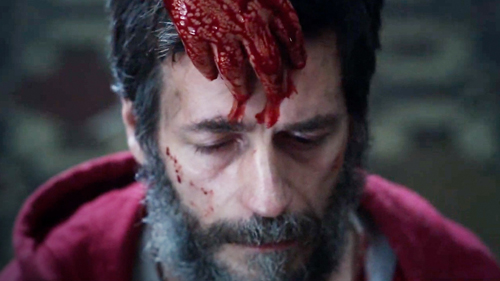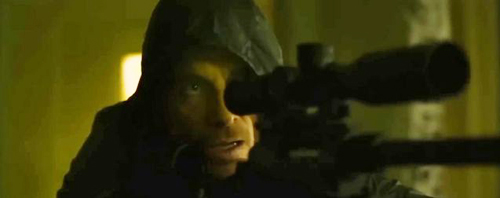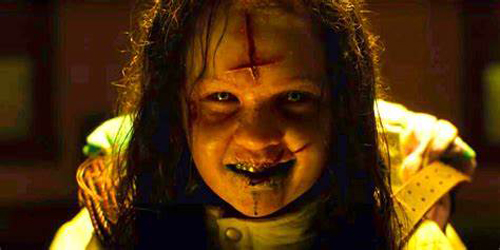
Aside from the script, performers and digital effects, movies are an amalgam of stuff we find lying around. The alien from John Carpenter and Dan O’Bannon’s Dark Star was just a painted beach ball with rubber feet attached. The crew of James Cameron’s Aliens double-dipped into their gear and used Steadicam arms to create the Colonial Marines’ M56 Smartguns. And the walls of the Nostromo from Ridley Scott’s original Alien featured a coffee grinder. (Granted, the space truckers probably just need a decent cup of joe every few million miles.)
Props — regardless of what they’re made of — give movies life. Tulsa banker Tom Biolchini, the subject of Juan Pablo Reinoso’s documentary Mad Props, seeks to preserve that life and celebrate props for what they ultimately are: art.
Though it doesn’t seem like this were ever in question, you probably don’t hear much appreciation for visual and technical designers not named Tom Savini, Phil Tippett or Ray Harryhausen. We love their work, true, but maybe we tend to give directors like Guillermo del Toro and Peter Jackson credit that’s at least partially due to their prop artists.

That compulsion to find and recognize those masters makes Mad Props more endearing than it otherwise could be. Because let’s be real: Watching a hugely successful banker drop hundreds of thousands of dollars on the Holy Grail from Indiana Jones and the Last Crusade isn’t exactly relatable. (Especially when you consider the didactic of that flick was how you shouldn’t obsess over one-of-a-kind treasures — Indy’s dad even shed a tear over it!)
If a wildly prohibitive hobby were all there was to Mad Props, it would frankly be a detached, insufferable trudge of a doc. Fortunately, the film makes a point to profile not just those who collect props, but the people who make and curate them, too. Biolchini has an infectious enthusiasm about this craft.
And while you could make the argument someone who collects a certain thing would want said thing to be recognized as art because that would likely inflate its value, that’s not quite how it would work since these items already command such a steep price. It seems Biolchini genuinely wants to preserve them in an era when less props are taking a physical form at all.
The behind-the-scenes stories Mad Props covers, like the nightmare that was the Goro suit from 1995’s Mortal Kombat, perfectly captures how much effort special effects demand even for just a few minutes’ worth of footage. A giddy Robert Englund recounting the many gloves of Freddy Krueger helps, too.
Mad Props really only wanes with the auction coverage. It just isn’t very interesting and does little to convey appreciation for film. In fact, the documentary finds meaning the further it drifts from the hobby and more into curation and prop production. It also helps that the doc is incredibly easy to watch. At its heart, it’s a light profile of movies and fans who love them. Like, a lot. —Daniel Bokemper









 Through no real fault of his own, Michael Fassbender’s past decade hasn’t exactly been stellar. His standout performances in Steve McQueen’s Shame (2011) and 12 Years a Slave (2013) came close to making him a household name. That is, until he was unable to save a trilogy of lackluster misses in 2016 with X-Men: Apocalypse, The Snowman and the video-game adaptation no one asked for, Assassin’s Creed.
Through no real fault of his own, Michael Fassbender’s past decade hasn’t exactly been stellar. His standout performances in Steve McQueen’s Shame (2011) and 12 Years a Slave (2013) came close to making him a household name. That is, until he was unable to save a trilogy of lackluster misses in 2016 with X-Men: Apocalypse, The Snowman and the video-game adaptation no one asked for, Assassin’s Creed.

